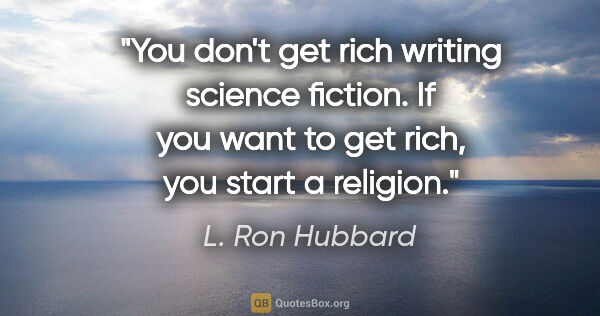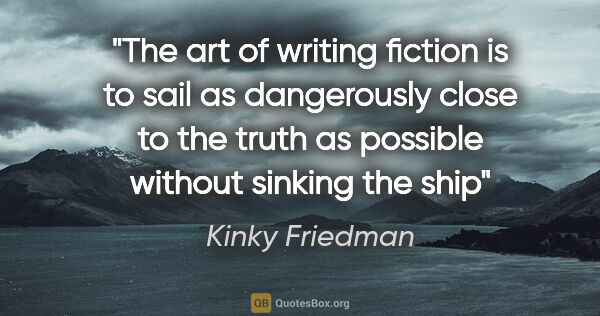Fiction Writing Quotes (page 7)

I read and write for character. If I like and can relate to the characters in a story I can enjoy any kind of story. I also want something with a definitive plot—you know, beginning, middle and end--that has forward motion. I don’t like series books that leave you hanging after you’ve finished a book and in my own fiction I try to make sure that there’s always an entry point for those who are new to the book as well as long-time readers.
Charles de Lint
Making fiction for children, making books for children, isn't something you do for money. It's something you do because what children read and learn and see and take in changes them and forms them, and they make the future. They make the world we're going to wind up in, the world that will be here when we're gone. Which sounds preachy (and is more than you need for a quotebyte) but it's true. I want to tell kids important things, and I want them to love stories and love reading and love...
Neil Gaiman
They know a million tricks, those novelists. Take Doctor Goebbels; that's how he started out, writing fiction. Appeals to the base lusts that hide in everyone no matter how respectable on the surface. Yes, the novelist knows humanity, how worthless they are, ruled by their testicles, swayed by cowardice, selling out every cause because of their greed - all he's got to do is thump on the drum, and there's his response. And he's laughing, of course, behind his hand at the effect he gets.
Philip K. Dick


For people never say anything the same way twice; no two of them ever say it the same. The greatest imaginative writer that ever brooded in a lavender robe and a mellowed briar in his teeth, couldn't tell you, though e try for a lifetime, how the simplest strap-hanger will ask the conductor to be let off at the next stop. ...It is all for the taking. All the manuals by frustrated fictioneers on how to write can't give you the first syllable of reality, at any cot, that any common conversation...
Nelson Algren
There is, in fact, not much point in writing a novel unless you can show the possibility of moral transformation, or an increase in wisdom, operating in your chief character or characters. Even trashy bestsellers show people changing. When a fictional work fails to show change, when it merely indicates that human character is set, stony, unregenerable, then you are out of field of the novel and into that of the fable or the allegory. - from the introduction of the 1986 Norton edition
Anthony Burgess
Johnson, who defines poetry as 'metrical composition', defines poet as 'An inventor; an author of fiction; a writer of poems; one who writes in measure'. We can gauge how far we have traveled by comparing this with the Shorter Oxford Dictionary which, after a definition very like Johnson's, feels obligated to add 'A writer in verse (or sometimes in elevated prose) distinguished by imaginative power, insight, sensibility, and faculty of expression'.
C. S. Lewis

